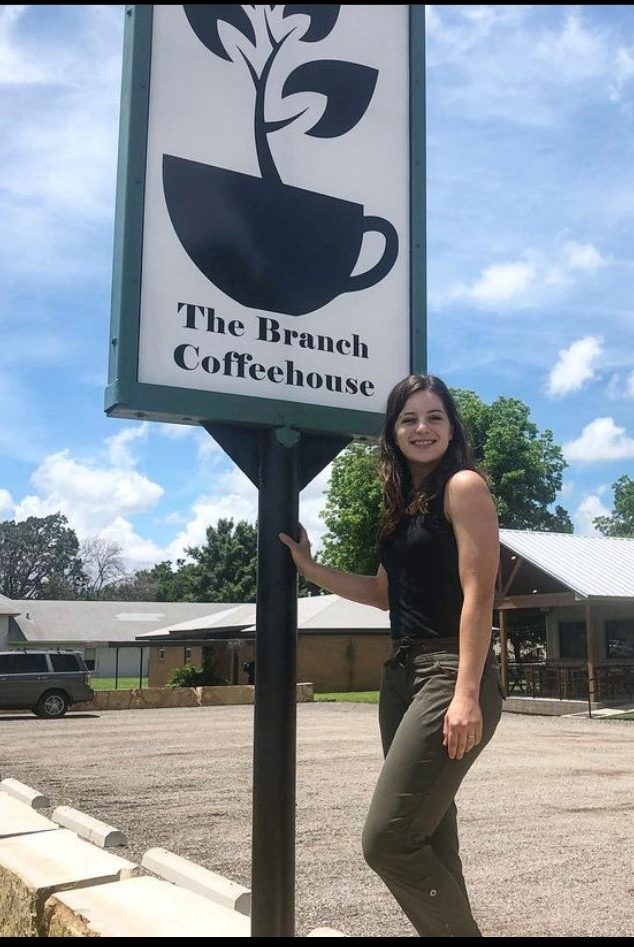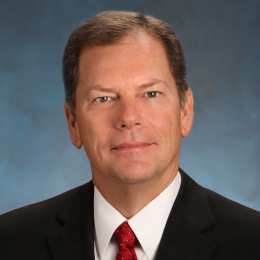College of Agriculture and Life Sciences helping develop entrepreneurs
Agribusiness Entrepreneurship program challenges students to ‘Dare to Soar’
Kindling the entrepreneurial spirit in students both inside and outside of the classroom is the goal of the Dianne and M. Edward Rister ’74 Agribusiness Entrepreneurship program in the Department of Agricultural Economics in Texas A&M’s College of Agriculture and Life Sciences.

According to program leaders, National Entrepreneurs’ Day, which is the third Tuesday in November, is an ideal time to highlight the program and some of its graduates.
About the Agribusiness Entrepreneurship program
At Texas A&M, the Rister ’74 Agribusiness Entrepreneurship program uniquely equips and positions both rural and metropolitan entrepreneurs, inviting them to “Dare to Soar” with their own entrepreneurial aspirations.
The students who complete the program are armed with business, economics, communication and leadership skills, enabling them to have a huge impact on their communities. They do this through creating jobs, supporting their community’s infrastructure and being leaders in their professional industries.
“Joe Swinbank ’74, a long-time lead supporter of the program, said, ‘Entrepreneurship cannot be taught,’” said Ed Rister, Ph.D., associate head of the Department of Agricultural Economics and associate dean of student professional development. “But he said, ‘What can be done is to provide learning opportunities inside and outside the classroom that kindle the entrepreneurial spirit of students.’”
Rister said this is what the Agribusiness Entrepreneurship program strives to do semester after semester. He said some of the attributes of those who “survive” the entrepreneurship program include:
— Awareness of the importance of a professional/personal peer mentoring.
— Possession of solid applied business acumen.
— Exceptional communication and leadership skills.
— A penchant for competition.
— An understanding of risk.
— An extraordinary work ethic.
From concept to reality
The program challenges undergraduate students to move from the concept and idea for a business enterprise through developing quantitative and qualitative economic and financial analyses of business plans and models. Its goal is to prepare students with the analytical and communication skills needed to accurately assess and discuss the feasibility of a business.
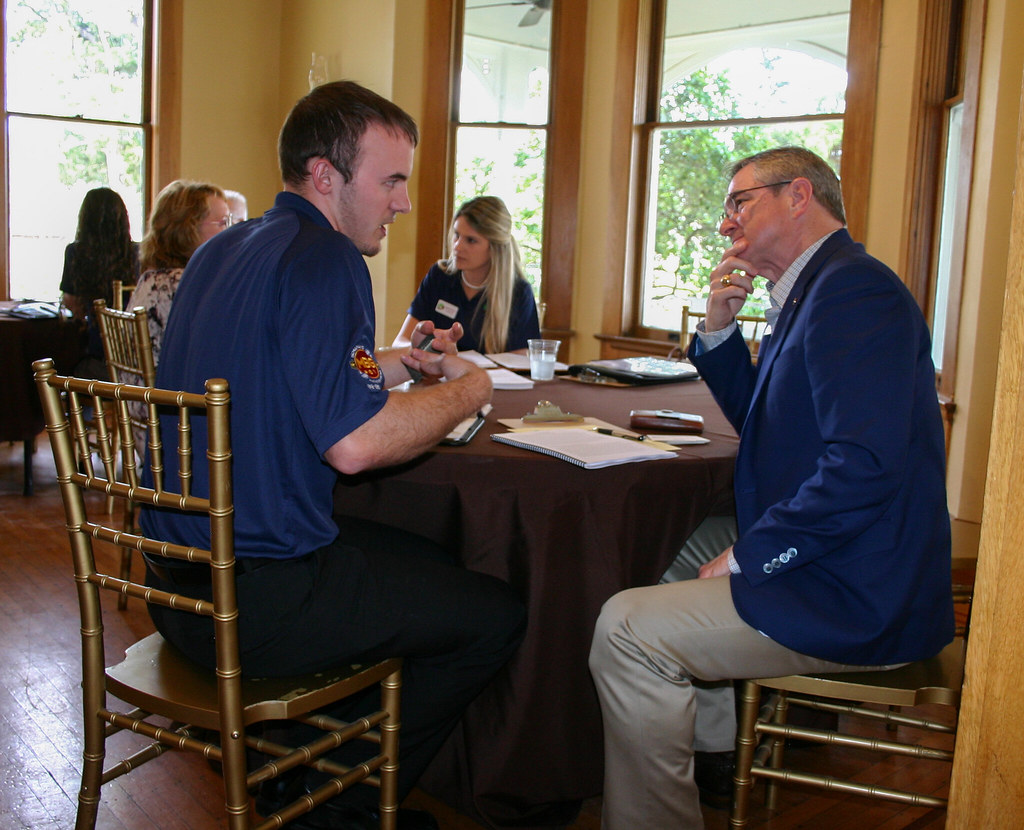
“Each student evaluates a business enterprise of their own choosing, intensifying their interest and understanding of the process of preparing a comprehensive evaluation of an idea,” Rister explained. “The value of the program is amplified by the one-on-one mentorship interaction students have with numerous successful entrepreneurs and other business leaders and professionals.”
He said this interaction enhances the student’s appreciation for real-world analyses of business concepts and their implementation.
“It is more important for students to learn the process and how to explain the results, whatever they may be, for their personal projects than the actual values realized in their analyses,” he said. “This gives them an advantage in being successful in starting their own business or assuming a leadership role in someone else’s business.”
He said many students from the program have launched businesses of their own, returned to positions within their family’s business, began working for another entrepreneur, or have been hired to work as a credit analyst or loan officer in the financial industry.
“Three out of four students enrolled in the agribusiness entrepreneurship minor are pursuing majors other than agricultural economics, but the majority are students from the College of Agriculture and Life Sciences,” said Merritt Weeks, assistant director for the Agribusiness Entrepreneurship program. “First offered in 2015, the minor is available to all majors at Texas A&M.”
However, Weeks said, not all participants are interested in starting their own businesses.
“Some are interested in other aspects of business, such as being lenders or investors,” she said. “They want to know what questions to ask and what to look for in a solid business plan or concept before they lend to or invest in an enterprise.”
The capstone experience
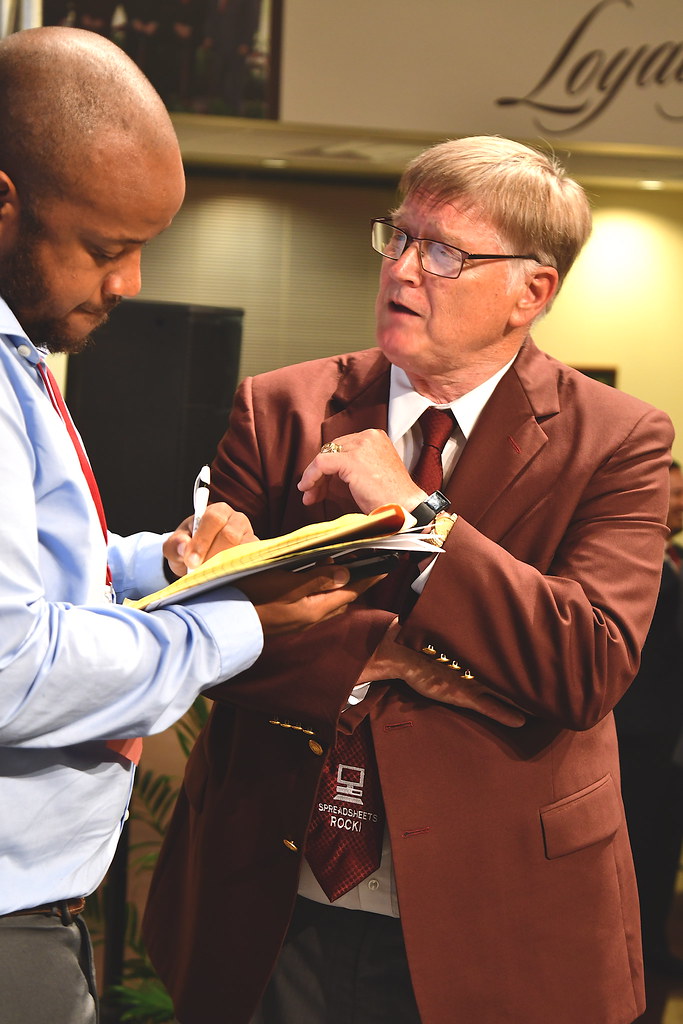
Students in the Agribusiness Entrepreneurship program gain valuable exposure to practical entrepreneurship in a two-semester capstone experience. In addition to developing business skills and acumen, they develop actual business plans and conduct comprehensive economic and financial analyses.
“In any given year, students interact with more than 200 real-world entrepreneurs, financial experts and other professionals with practical business experience,” Weeks said. “Partnerships with professional business leadership coaches also give students opportunities to hone their professional brands and to develop their business etiquette and pitch skills.”
The final component of the capstone experience is an annual symposium, currently sponsored by Texas Farm Credit. Students compete in three levels of business pitch competitions. The finalist, recognized as the Rural Entrepreneur of the Year, receives the top scholarship awarded by Decker Capital Partners.
“Additional scholarship funds are awarded to recognize outstanding performance during the capstone experience,” Weeks said. “Scholarships are donated by former students of the program and other mentors who value the high-impact, applied-learning experiences students receive.”
Students who have graduated from the Agribusiness Entrepreneurship program have dared to soar by creating their own business or taking a leadership role in an existing business.
Roping in a new business
Agribusiness Entrepreneurship program graduate Clay Deen ’16 has helped take roping into the 21st century as part of a team that developed RopeMetrics LLC, a software and classification operating system for team roping.
Deen serves as president and chief operating office for RopeMetics, launched in 2017, as well as for NextGenRodeo, launched in 2019.
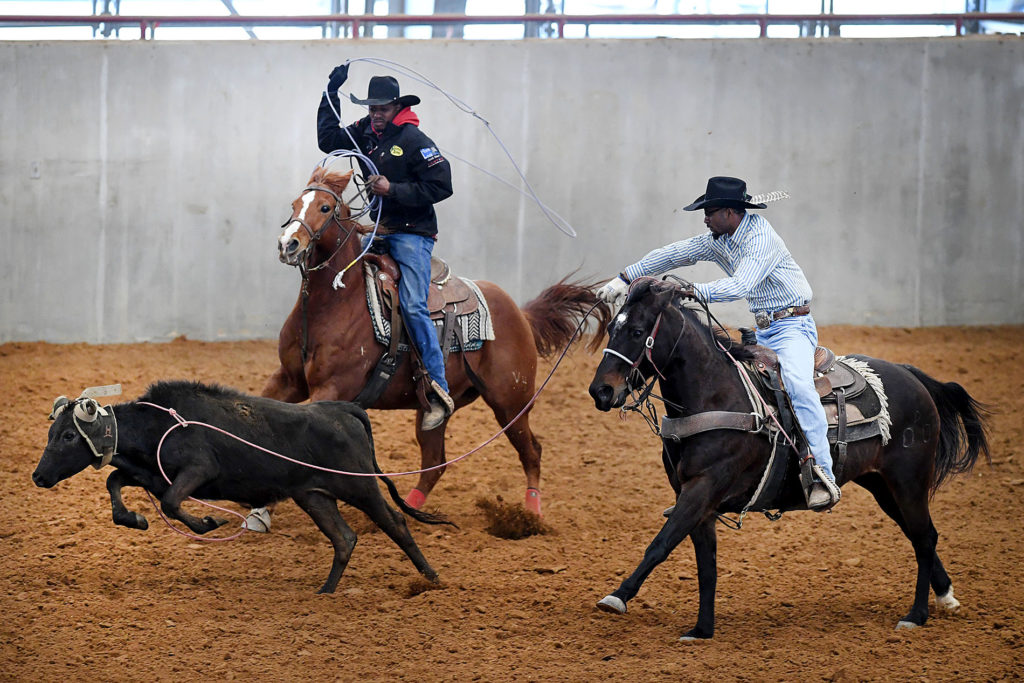
Seizing an opportunity to advance the sport they loved, Deen and others combined their passion for roping with the latest technology to develop RopeMetrics software — and an app for mobile devices.
“We saw a need for developing RopeMetrics as most of the technology and software for western competition was decades old,” Deen said. “RopeMetrics provides competition ropers with information on where the rodeos are and with live updates on the names and times of their competition. It also gives them the ability to review videos of their performance so they can make any necessary adjustments.”
He said NewGenRodeo has many of the same features and offers the ability to sign up and pay for competitions. It also uses an algorithm that helps ropers maximize their time by locating and helping them schedule as many competitions as feasible.
Deen said his agricultural economics courses, especially those of the Agribusiness Entrepreneurship capstone, provided him with the real-world business perspective he needed to pursue this venture.
“The capstone course teaches you something about every aspect of business, from developing a business idea to making it happen,” he said. “An entrepreneur has to look at and evaluate every aspect of his business from capital assets to cash flow to adding silent partners and finding investors.
“In the course and in real life, you have to develop a model that shows where you can break even and where you can make a profit. And you need to develop a broad picture of where you see your business going and strategize on how you can grow it.”
He said one of the most important lessons he learned during the program was to find the right partners.
“All the people involved in my companies discuss any plans and make any business decisions together,” Deen said. “We each have different skills and strengths, and we know how to work together to make the most of our combined knowledge.”
Branching into the coffee business
Maggie Branch Awalt ’19 has lived up to expectations as “Most Likely to Begin Business” — an accolade she received at the 2019 Texas Farm Credit Entrepreneurial Dreams Symposium for her presentation on the feasibility of opening her own coffee house.
Branch developed her business plan for the coffee house while a student in the program. She transformed that aspiration into reality when, after graduating college, she returned to her small community in the Jim Ned Valley in Tuscola, south of Abilene.
There she opened The Branch Coffeehouse in June 2020. The coffee house serves specialty coffee, homemade baked goods and desserts, as well as selections of healthy soups, salads and sandwiches – all made from scratch.
When at Texas A&M, Branch took a coffee-processing class through the Department of Horticulture. There, one of her mentors, Rodrigo Chavez, taught her most of what she needed to know about coffee.
“But my real inspiration for opening a coffee house was from a study abroad I did in Ireland,” she said. “There were lots of cafes, bakeries and coffee shops in every small town I visited.”
Branch developed a business plan and did a feasibility study for opening a coffee house in her home community, applying the analytical skills she learned in the entrepreneurship program.
“Dr. Rister asked me to run pro forma parameters, or pro forma projections, and to project the business out seven years to mimic a typical business pathway,” she said. “I researched the demographics of the area, the amount of vehicle traffic, what my competition would be, and how many customers I would need to sustain the business. I looked at all the options to find out if this type of business could be feasible for me.”
She said the analysis showed that while the community where she wanted to locate her shop was small, the income level of the general population was high, and there was more than ample traffic to sustain a coffee shop.
“Although doing your factual research is important, I think one of the best lessons I learned was to seek out and talk to people who were actually in the business,” Branch said. “You can get a lot of data from internet research, but you learn the most from those who have already been through the experience. In my case, what I learned from going through Dr. Rister’s capstone course and from other people has made me more confident, both as a person and in business.”
From gridiron to boardroom
Hunter Goodwin ’98 has been as successful in business as he was as an All-Conference offensive tackle for Texas A&M and a tight end for the Minnesota Vikings, Miami Dolphins and Atlanta Falcons.
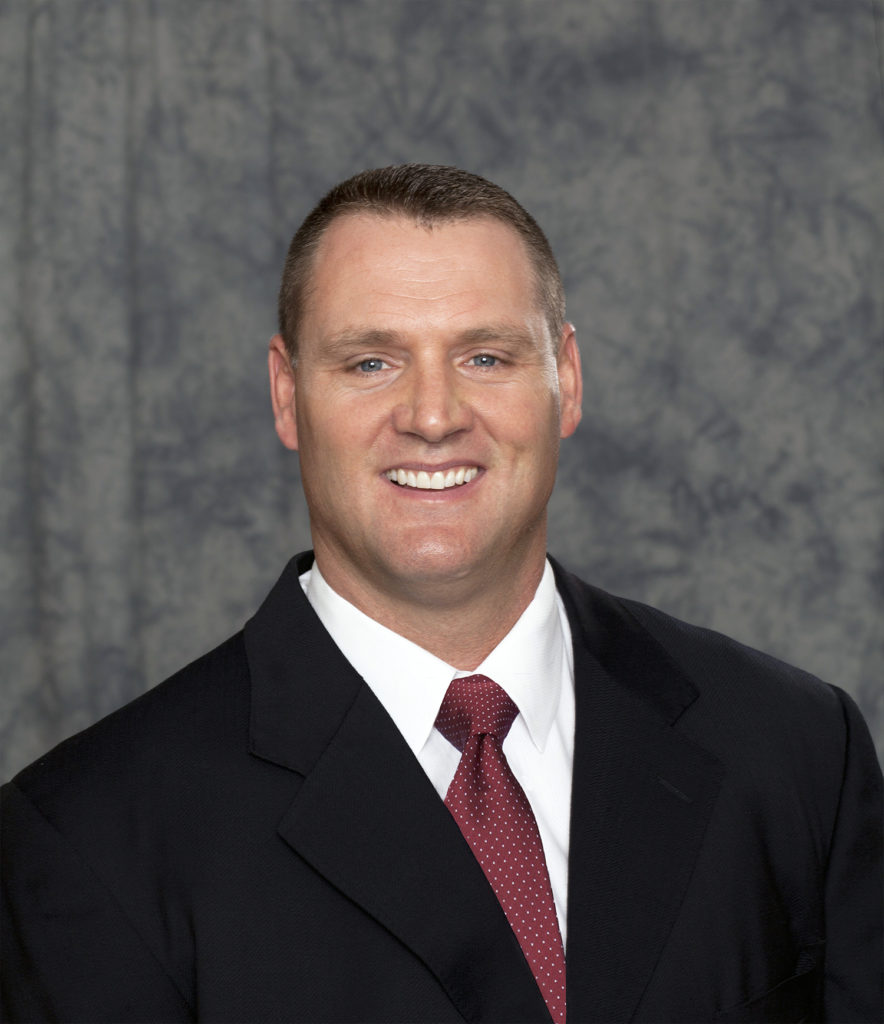
Goodwin is an owner of Oldham Goodwin Group LLC, a real estate development company, and serves as its president and chief operating officer. He implements company business strategies and launches new business ventures and initiatives. His specialty is asset management and developing commercial, multifamily and hospitality properties.
“I use the skills I learned in Dr. Rister’s entrepreneurship course in making business decisions,” he said. “During the capstone course, part of my project was to develop a business plan, look at all the related cost components and do a full analysis, including a shock analysis that considered unexpected negative events. Then I had to defend my numbers and decisions in front of real lenders and convince them my plan was solid.”
Goodwin said in his current work, he still uses those analytical tools and skills he learned in the entrepreneurship course.
“I frequently deal with debt and equity components and have to consider multiple possibilities in property development,” he said. “And I still have to defend my numbers. The course prepared me for real-world business. As it turned out, later in life I actually wound up borrowing from some of the same lenders who critiqued my project.”
He said the experience also helped prepare him for life after professional football.
“It was easier for me than a lot of players to transition from the game I loved to the world of business,” he said. “It prepared me to look at variables and consider a range of possibilities that might affect my future. The experiences I had, and the access to resources I was given, played a significant part in my being ready to make the most of my football career — and my life after football.”
From wishes to whimsy
Kelsea Vaughan ’14 is the founder and owner of Touch of Whimsy, a Texas-based event design and coordination business located in New Braunfels. The company provides floral design, partial and complete wedding planning, as well as event coordination for special occasions and corporate events.
Not long after graduating from Texas A&M with a degree in agricultural economics, focusing on entrepreneurship and receiving a certificate in event management, Vaughan married her college sweetheart, J. Boyd, who graduated with an animal science degree while also completing the entrepreneurship program. Soon after that, the couple moved to South Texas, where none of the jobs available seemed to pique Vaughan’s interest.
“I have always felt it was my calling to serve others through my ability to plan,” she said. “My goal was always to own an event planning firm, so I decided to jump in and start one.”
She credits the entrepreneurship program with her ability to develop a working business plan and execute it. After calculating start-up costs, developing a business and marketing plan, looking for the appropriate software and technology, and finishing the initial design of her website, Vaughan officially launched Touch of Whimsy in June 2015.
“The most important lesson I learned was how to evaluate a business opportunity and determine whether or not it saw a viable option, instead of simply basing the decision on a gut feeling,” Vaughan said. “You have to know if the math supports your business decisions.”
She said she and her husband are now planning to apply their business acumen toward another venture — short-term rentals in the Texas Hill Country.
“We are looking into buying properties and refurbishing them for rentals,” she said. “We do a lot of design work for events through Touch of Whimsy, and I can apply that skill toward interior design to create a unique and relaxing environment for guests to enjoy.”
Whether a borrower or lender
Mark Miller ’87, president and chief executive officer of Texas Farm Credit, Robstown, was among the students who took the Agribusiness Entrepreneurship program to learn more about business in general.
“I took the entrepreneurship program when it was more focused on farm and ranch management,” Miller said. “My goal was to learn about general business principles and the skill sets needed to analyze a business.”
He said he applies those skills he learned in the program to make lending decisions.
“The program showed me the necessity of making business decisions that involved assessing risk, budgeting, developing a solid business plan, contingency planning, marketing and other factors,” Miller said. “Knowing about these is important regardless of what side of the table you’re on – the borrowing side or the lending side.”
He said while the knowledge gained in the program can be used to start a business, it can also be adapted to make business innovations in existing businesses.
“The capstone course I took under Dr. Rister also helped me integrate the knowledge I had accumulated in other business courses and showed me how to apply that theoretical knowledge in practical applications,” Miller said. “By example, Dr. Rister also showed me the importance of a strong work ethic and how having an instructor who really cares about his students can make a real difference in someone’s life.”
Today, all these former students give their time to mentor those in the Agribusiness Entrepreneurship program. Rister said the true strength of the program is these former students using their real-world experiences to help current students develop their business plans and “dare to soar” once they graduate.
For more information on the Agribusiness Entrepreneurship program, contact Ed Rister at e-rister@tamu.edu or Weeks at mjweeks@tamu.edu.
